- Home
- Dennis Lehane
Boston Noir 2 Page 2
Boston Noir 2 Read online
Page 2
"No."
But she did let him. He saw the seat in the tub, the railing installed over the toilet.
She was sitting in the sunlight of the front windows when he emerged. "You hate me," he said. "And you have every right. I can't change or fix what happened, what I did. I can only act in the here and now. Please, let me be of some service to you."
She refused, but for the moment appeared less certain of him.
* * *
He began coming inside some afternoons. Straightening up the place. Changing lightbulbs, fetching things from the basement, clearing out high closet shelves. He was something of a butler. Few words passed between them.
One afternoon, Nicole's doorbell brought Miles face-to- face with Thea, her sister-in-law, the widow of the man Miles had killed. Thea stared at him, the CorningWare pan exploding with a crack as the casserole slipped from her hands.
"What are you doing here?" she shouted, pushing past him to check on Nicole. "What are you thinking, Nicole?" Thea dialed 911 as Nicole watched from her chair in the corner of the room. "You're getting a restraining order!"
* * *
But Nicole did not get a restraining order. Miles began bringing her movies, and occasionally watched a few minutes with her. One time they caught themselves laughing at the same thing, and then Nicole became very quiet, and Miles got up and left the room.
He replaced the seat pad and armrests on Nicole's motorized chair. Lifting her back into it was the first time he ever touched her. The frail thinness of her dead legs shocked him. Nicole stared straight ahead the entire time.
Thea never stopped by again. Miles sensed that she and Nicole were no longer talking. Letters from Nicole's lawyers and the district attorney arrived in the mail, but he never looked at them.
Miles was learning how to cook, and began preparing meals for her. He ate in the kitchen, Nicole sitting alone in the dining room, until one night he joined her. Their conversations were generally confined to movies and television shows. At some point she began calling him Miles. The one time he ever brought up her dead brother, he received a quiet yet harsh rebuke. "Never speak Greg's name to me again," Nicole said, shaking. "Not out of your mouth. Never."
* * *
He never again did. A few days later they were back on speaking terms.
Together they attended the driver's wife's funeral. Nicole wept at the interment, and Miles did too. At one point he rested his hand upon her shoulder, and she reached up and touched his fingers. Then both hands fell away.
She agreed to let him take her to a small Italian restaurant on the way home. He ordered a soft drink with his meal, explaining how he had not tasted a drop of alcohol since that day. "You do seem to have changed," she said.
"All due to you. For allowing me the opportunity. And by your example."
"My example?"
"Moving on. Facing such adversity and making yourself into something new. And by allowing me to serve you. It gives my life some meaning."
It was late when they arrived home, the latest they had been together. Nicole was exhausted, and Miles removed her shoes so she wouldn't have to, then bid her good night.
* * *
The trial date, after two protracted delays, was set to begin in five weeks.
Nicole grew more and more nervous, and Miles sought to reassure her. "All you have to do is tell them what happened that night."
"I can never forgive you," she told him later.
He said, "I wouldn't let you if you tried."
"But it's no secret. I've come to rely on you. I don't know what I'll do after. It will be lonely around here."
He assured her that he felt the same. Then, with just two weeks until the trial, and still so much unsaid between them, Miles broke down one night at dinner. "I have a terrible confession to make. All this—at first—was my father's lawyer's suggestion."
"All what?"
"The Rampvan. The letters. But you must believe me that, over time, everything has changed."
"What suggestion?" she said.
"It's something called the 'Marriage Privilege.' Massachusetts law exempts a person from testifying against his or her spouse, even about events that occurred prior to their marriage. He told me it was my only chance to stay free. The man is a crook—they're all crooks, my father included. Scoundrels and thieves. But I have no fear of prison now. It is only right that I should atone. As I have tried to do here, in serving you." Nicole remained still as Miles went on. "This is very awkward, what I am saying. But I can't imagine leaving you now. I don't exist anywhere else, except here, in this house. With you. If it was just me, I wouldn't care about prison. I'd welcome it. But . . . what about you?"
After some time, Nicole said, "Marriage?"
"I could provide for you. At the very least. My father's money, my place in his company. I could build us a bigger house. All the special things you need. Of course, I would never expect you to love me. But there are reasons to marry beyond love—don't you think?"
She stared, thunderstruck.
"I know," he said. "And it would be so awkward for you, what others would think. My fate is entirely in your hands—as it should be, as it has been ever since that terrible night. It is for you to decide. What is best and right for you—and you alone."
* * *
The case was dismissed with a single crack of the gavel. "A terrible violation of ordinary moral decency," decreed the judge. But Nicole just sat there, unmoved.
Bailiffs held Thea back as she fought to get to the defense table, swearing wildly at Miles. Her cursing faded to anguished sobs as Miles wheeled Nicole away through a side door. They sat alone together in a clerk's room, holding hands, not saying anything, waiting for the Rampvan to pull around to the rear exit so they could avoid the media.
Miles began to feel that a great weight had been lifted.
* * *
Fellowes watched Miles Bard Sr. read about his son in the newspaper, while the genuine article sat before his desk.
The father said, "I don't know whether to congratulate you or spit on you."
"No prenup," Fellowes reminded Bard Sr. "You're exposed here. Miles's shares in the company, the personal family assets in his name. A divorce will be costly, much more so than a Rampvan and some home improvements." He looked at the son sitting deeply in the dimpled leather chair. "How long are you willing to play this out?"
"Six months," said young Miles. "Then I'll get the marriage annulled. She's paralyzed from the waist down, right? And all the charges have been summarily dismissed." On Fellowes's look, he said, "She can keep the house."
The newspaper rustled as it was folded and set aside. "If only you'd applied yourself to the company with such ruthless determination," said Bard Sr. "But that doesn't hold your interest, does it? The legitimate world."
The old man had come late to fatherhood, building a corporation instead of raising a son, and this was the result. Someone he did not know; a creature with half his genes and none of his respect. A creature who frightened him. And to whom he could never say No again.
Fellowes watched Miles cross to the mirror-backed bar. "Should you?" said Fellowes.
Miles toasted himself with a glass of bourbon. "I earned this."
* * *
For the first few days, everything was the same between them. It was decided that Miles would sleep at his father's while the Dover house remodeling continued. Nicole began to notice that his afternoon errands were taking longer. One Friday evening he came in muttering to himself and fell asleep on her sofa.
Dinners together dropped off. Miles cooked less and ordered takeout more. He didn't always stay and keep her company. On some days, there was no dinner at all.
He chauffeured her to her appointments, but was not always there waiting when she finished. "Where were you?" she would ask, when he returned.
"Nowhere," he would answer, with an empty smile.
Her home grew shabby as Miles let his cleaning duties slide. Nicole did mos
t of the packing for the move.
"You've changed," she told him, confronting him one rainy afternoon. "Do you think I don't know you're drinking again?"
Miles bared a knife-blade smile. Nicole could see, behind his eyes, every hateful thing he wanted to say to her. He went out, staying away for days.
When he returned, he pretended nothing had happened. He expected relief from her, maybe even forgiveness, but Nicole did not crumble. Instead, she watched him all the time. Judging him. He feigned indifference, but his discomfort was evident. Her gaze haunted him.
Moving day was a joyless affair. Miles spent much of it talking on his phone to people Nicole had never met. The ride from West Roxbury to Dover passed in silence, and she felt herself crossing a line that she could never cross back over. An onlooker might have thought they were downgrading from a fully accessible three-bedroom showplace to an underfurnished rental, rather than the other way around.
Inside her new home, Nicole rode the brass-gated lift to the second floor. She rolled along the wide and silent hallway into the master bedroom suite, where her steel-framed hospital bed looked small.
Had Miles looked in on her that first evening, he would have seen that the only item Nicole had unpacked was a framed photograph of herself and Greg, the twins laughing and dancing at Greg's wedding. Instead, he retired directly to the bed in the guest room.
* * *
Miles awoke to find his wrists bound behind his back. He tried to stand, but a cord around his neck tethered him to the headboard.
The lamps came on brightly inside the newly painted room. Miles squinted and blinked at the intruder. She wore a black sweatsuit and pale latex gloves, her hair tucked up inside a knit cap.
Thea, the widow. A small silver revolver trembled in her hand.
"Nicole!" Miles called out, when he could dislodge the word from his throat.
Thea's jaw quivered as she pulled a photograph from her pocket and showed it to Miles from the foot of the bed. Her wedding photo.
Thea told him about her life with Greg. How they met, what his hobbies were, his favorite movies, sports, foods. She took Miles through their wedding day, from breakfast with her parents to the farewell dance. She told him all about Bermuda, what they did each hour of their honeymoon. And the last time she saw Greg, kissing him goodbye that afternoon in the kitchen of their Somerville apartment. She swiped angry tears on her sleeve at the end, the revolver trembling all the more.
Miles saw that she was working herself up into a killing. "You'll never get away with this!" he cried, through the choking neck cord. "Even if you kill us both!"
Thea said, "You haven't figured it out by now?"
Tires whispered over carpet as Nicole rolled in through the wide door. She wore a long, sheer white nightgown, barefoot and delicate-looking in the chair, even lovely.
Thea never broke aim on Miles. "Nine months ago, I bought this gun. Never fired it. Reported it stolen in a break-in two months later. I have an alibi for tonight, not foolproof, but good enough. These gloves hide my fingerprints, the hat keeps in my hair. Leaving only Nicole as a witness. She will tell the police the truth of what she sees here tonight. Because we want your father to know who will be running Bard Industries alongside him from now on. And who will inherit everything after he is gone. The same two women who avenged their own losses by murdering his degenerate son."
"Inherit everything . . . ?" The cord was too tight.
"'There are reasons to marry beyond love,'" said Nicole, sitting ghostlike in the chair. "Your own words, Miles. Couldn't one of those reasons be revenge?"
Thea said, "Without any proof that I was ever inside this house, my criminal conviction will hang on one thing. Nicole's eyewitness testimony in a court of law. Which she will be exempted from giving." The revolver stopped trembling as Thea aimed it at Miles's heart. "You got away with murder. Why can't we?"
"You see, Miles," explained Nicole, "Thea and I, we are going to be married."
NIGHT-SIDE
BY JOYCE CAROL OATES
Quincy
(Originally published in 1977)
To Gloria Whelan
6 February 1887. Quincy, Massachusetts. Montague House.
Disturbing experience at Mrs. A——'s home yesterday evening. Few theatrics—comfortable though rather pathetically shabby surroundings—an only mildly sinister atmosphere (especially in contrast to the Walpurgis Night presented by that shameless charlatan in Portsmouth: the Dwarf Eustace who presumed to introduce me to Swedenborg himself, under the erroneous impression that I am a member of the Church of the New Jerusalem—I!). Nevertheless I came away disturbed, and my conversation with Dr. Moore afterward, at dinner, though dispassionate and even, at times, a bit flippant, did not settle my mind. Perry Moore is of course a hearty materialist, an Aristotelian-Spencerian with a love of good food and drink, and an appreciation of the more nonsensical vagaries of life; when in his company I tend to support that general view, as I do at the University as well—for there is a terrific pull in my nature toward the gregarious that I cannot resist. (That I do not wish to resist.) Once I am alone with my thoughts, however, I am accursed with doubts about my own position and nothing seems more precarious than my intellectual "convictions."
The more hardened members of our Society, like Perry Moore, are apt to put the issue bluntly: Is Mrs. A—— of Quincy a conscious or unconscious fraud? The conscious frauds are relatively easy to deal with; once discovered, they prefer to erase themselves from further consideration. The unconscious frauds are not, in a sense, "frauds" at all. It would certainly be difficult to prove criminal intention. Mrs. A——, for instance, does not accept money or gifts so far as we have been able to determine, and both Perry Moore and I noted her courteous but firm refusal of the Judge's offer to send her and her husband (presumably ailing?) on holiday to England in the spring. She is a mild, self-effacing, rather stocky woman in her mid-fifties who wears her hair parted in the center, like several of my maiden aunts, and whose sole item of adornment was an old-fashioned cameo brooch; her black dress had the appearance of having been homemade, though it was attractive enough, and freshly ironed. According to the Society's records she has been a practicing medium now for six years. Yet she lives, still, in an undistinguished section of Quincy, in a neighborhood of modest frame dwellings. The A——s' house is in fairly good condition, especially considering the damage routinely done by our winters, and the only room we saw, the parlor, is quite ordinary, with overstuffed chairs and the usual cushions and a monstrous horsehair sofa and, of course, the oaken table; the atmosphere would have been so conventional as to have seemed disappointing had not Mrs. A—— made an attempt to brighten it, or perhaps to give it a glamorously occult air, by hanging certain watercolors about the room. (She claims that the watercolors were "done" by one of her contact spirits, a young Iroquois girl who died in the 1770s of smallpox. They are touchingly garish—mandalas and triangles and stylized eyeballs and even a transparent Cosmic Man with Indian-black hair.)
At last night's sitting there were only three persons in addition to Mrs. A——. Judge T—— of the New York State Supreme Court (now retired); Dr. Moore; and I, Jarvis Williams. Dr. Moore and I came out from Cambridge under the aegis of the Society for Psychical Research in order to make a preliminary study of the kind of mediumship Mrs. A—— affects. We did not bring a stenographer along this time though Mrs. A—— indicated her willingness to have the sitting transcribed; she struck me as being rather warmly cooperative, and even interested in our formal procedures, though Perry Moore remarked afterward at dinner that she had struck him as "noticeably reluctant." She was, however, flustered at the start of the séance and for a while it seemed as if we and the Judge might have made the trip for nothing. (She kept waving her plump hands about like an embarrassed hostess, apologizing for the fact that the spirits were evidently in a "perverse uncommunicative mood tonight.")
She did go into trance eventually, however. The four of us were s
eated about the heavy round table from approximately six fifty p.m. to nine p.m. For nearly forty-five minutes Mrs. A—— made abortive attempts to contact her Chief Communicator and then slipped abruptly into trance (dramatically, in fact: her eyes rolled back in her head in a manner that alarmed me at first), and a personality named Webley appeared. "Webley's" voice appeared to be coming from several directions during the course of the sitting. At all times it was a least three yards from Mrs. A——; despite the semidark of the parlor I believe I could see the woman's mouth and throat clearly enough, and I could not detect any obvious signs of ventriloquism. (Perry Moore, who is more experienced than I in psychical research, and rather more casual about the whole phenomenon, claims he has witnessed feats of ventriloquism that would make poor Mrs. A—— look quite shabby in comparison.) "Webley's" voice was raw, singsong, peculiarly disturbing. At times it was shrill and at other times so faint as to be nearly inaudible. Something brattish about it. Exasperating. "Webley" took care to pronounce his final g's in a self-conscious manner, quite unlike Mrs. A——. (Which could be, of course, a deliberate ploy.)
This Webley is one of Mrs. A——'s most frequent manifesting spirits, though he is not the most reliable. Her Chief Communicator is a Scots patriarch who lived "in the time of Merlin" and who is evidently very wise; unfortunately he did not choose to appear yesterday evening. Instead, Webley presided. He is supposed to have died some seventy-five years ago at the age of nineteen in a house just up the street from the A——s'. He was either a butcher's helper or an apprentice tailor. He died in a fire—or by a "slow dreadful crippling disease"—or beneath a horse's hooves, in a freakish accident; during the course of the sitting he alluded self-pityingly to his death but seemed to have forgotten the exact details. At the very end of the evening he addressed me directly as Dr. Williams of Harvard University, saying that since I had influential friends in Boston I could help him with his career—it turned out he had written hundreds of songs and poems and parables but none had been published; would I please find a publisher for his work? Life had treated him so unfairly. His talent—his genius—had been lost to humanity. I had it within my power to help him, he claimed, was I not obliged to help him . . . ? He then sang one of his songs, which sounded to me like an old ballad; many of the words were so shrill as to be unintelligible, but he sang it just the same, repeating the verses in a haphazard order:

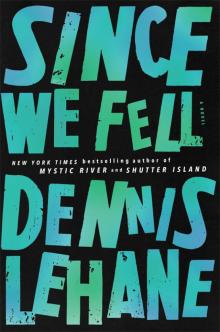 Since We Fell
Since We Fell Prayers for Rain
Prayers for Rain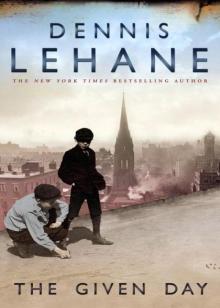 The Given Day
The Given Day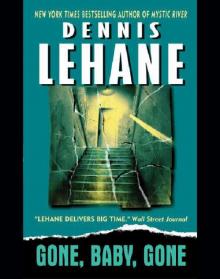 Gone, Baby, Gone
Gone, Baby, Gone Mystic River
Mystic River A Drink Before the War
A Drink Before the War Shutter Island
Shutter Island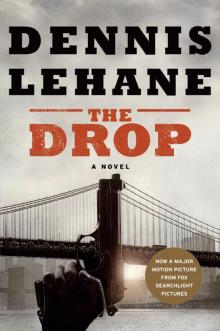 The Drop
The Drop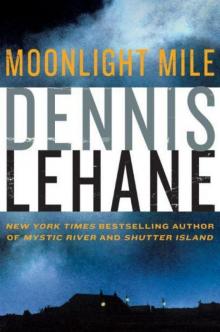 Moonlight Mile
Moonlight Mile Sacred
Sacred World Gone By
World Gone By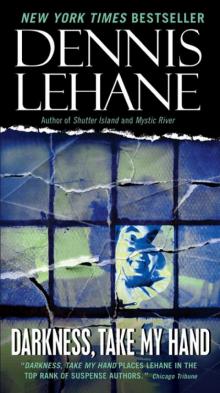 Darkness, Take My Hand
Darkness, Take My Hand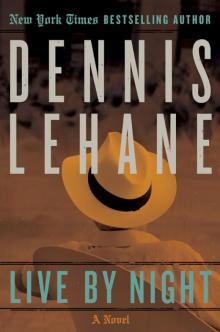 Live by Night
Live by Night World Gone By: A Novel
World Gone By: A Novel Coronado
Coronado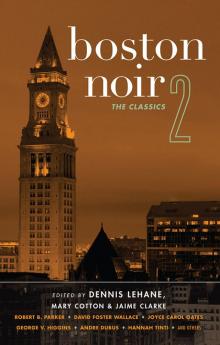 Boston Noir 2
Boston Noir 2 World Gone By: A Novel (Joe Coughlin Series)
World Gone By: A Novel (Joe Coughlin Series)